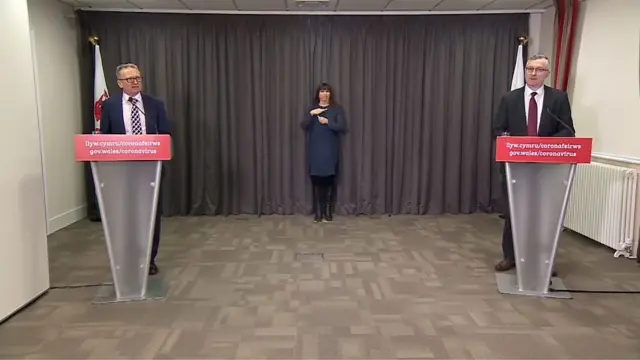Goodbyepublished at 17:05 British Summer Time 3 July 2023
The inquiry has run out of time, and has stopped taking evidence from Dr Goodall today.
We'll be back tomorrow where we will hear more from the permanent secretary, as well as First Minister Mark Drakeford and former health minister Vaughan Gething.
